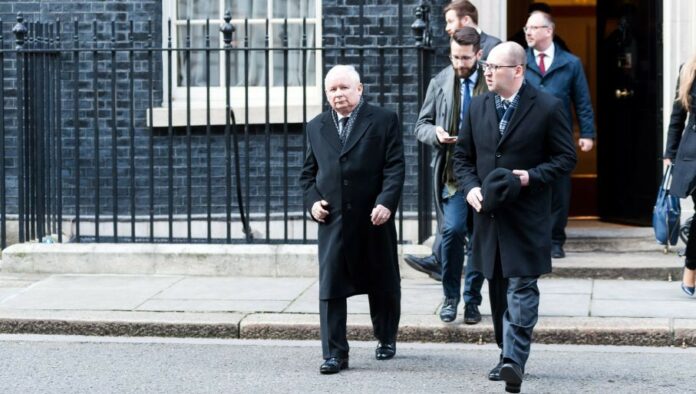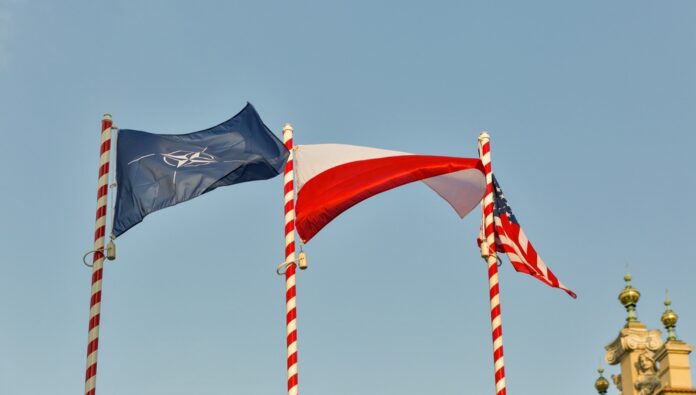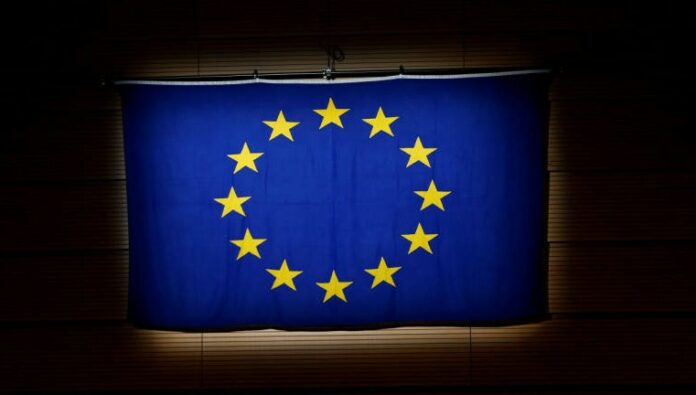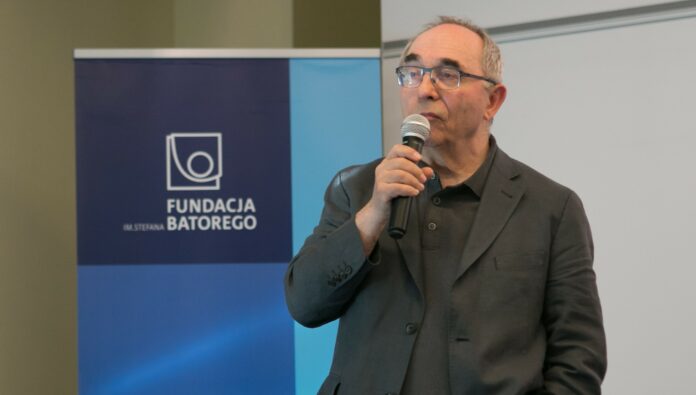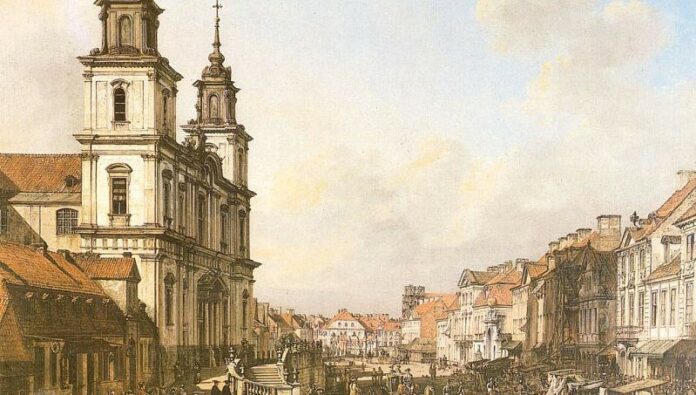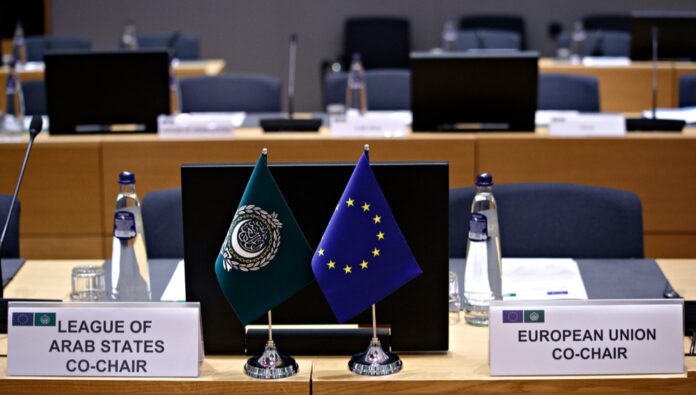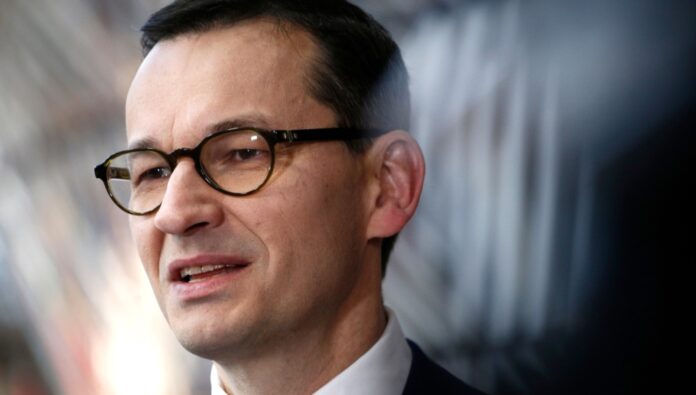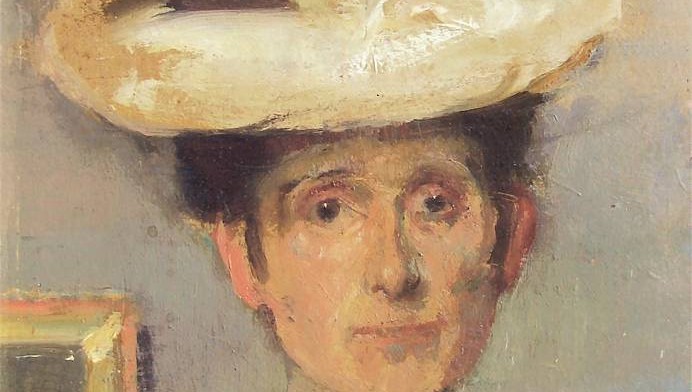Poland and the UK have a long history of working together. In recent years, the United Kingdom has offered investment in the Polish market, and many Polish workers came to the UK in the early 2000s. Polish ruling party leader Jaroslaw Kaczynski drew criticism from other EU leaders as he visited Theresa May in London on March 23rd 2017. They viewed his meeting with Prime Minister May as breaking up the united front against London that Brussels demanded from the other 27 EU member states.
Historic: Poland celebrates 20 years of NATO membership.
“I like the dreams of the future better than the history of the past.” The words of Thomas Jefferson which have particular resonance in this part of the world where the history of the past is all too often, among politicians at least, apt to be a distraction from the dreams of the future. But not always, as we think of one celebration of the recent past which does realise a dream of the past, present and future: Poland’s military security.
Thus, Poland marks the twentieth anniversary of joining NATO, something which Poland’s president Duda described as historic. Speaking during a visit to the Multinational Corps Northeast in Szczecin, the president said: “Poland joining the alliance finally confirmed Poland’s sovereignty and independence, as well as its departure from the Russian sphere of influence and entrance to the Western geopolitical zone”.
A day earlier, prime ministers and defence ministers from Poland, the Czech, Hungary, and Slovakia, the countries which make up the Visegrad Group (V4) met soldiers from the 1st Armoured Brigade in Warsaw. During the meeting, the Polish Defence Minister Mariusz Błaszczak said that “today we cannot imagine NATO without our countries.”
“We are supporting each other, and we make up a community, which guarantees safety”. He also said that the troops from the 1st Armoured Brigade in Warsaw are soon to be deployed to Afghanistan as part of a NATO mission.
Polish Prime Minister Mateusz Morawiecki added that over the last 20 year, the V4 countries have proven to be valuable members of the alliance. Slovakian Prime Minister Peter Pellegrini said during the event in Warsaw that joining NATO was for his country “the highest security guarantee.” He added: “Our strength is the ability to discuss our differences and finding common answers to challenges”.
On Tuesday the celebrations moved to Prague, where the presidents of Poland, Hungary and the Czech Republic were to attend an event at Prague Castle. Poland’s Andrzej Duda, the Czech Republic’s Miloš Zeman and Hungary’s János Áder were expected to be joined by President Andrej Kiska of Slovakia, whose country joined NATO five years later than the others in 2004.
And there is cause for celebration. As NATO Secretary-General Jens Stoltenberg said in Warsaw in early March: “We are very grateful for the contribution Poland makes to NATO every day”. “Poland is a very committed ally, an ally which is contributing to our shared security, to our collective defence in many different ways,” Stoltenberg added. “And that’s something which we really welcome.”
Poland is one of the few members meeting the NATO target of spending two per cent of GDP on defence, participates in NATO foreign missions, such as in Afghanistan, and enthusiastically welcomes the presence on NATO troops in Poland. Indeed, it goes further and is actively lobbying for a permanent US base to be established in Poland as an enhancement of its security beyond the current rotating NATO battalions, introduced in response to Russia’s annexation of the Crimea in 2014.
It is this perceived threat from Russia, which inevitably opposed Poland’s accession to NATO, which motivates Poland to continue look beyond NATO membership as the achievement of a strategic goal, and to the United States as a security guarantor. The permanent US base is but the latest step in a policy of staying close to the US which began with Poland’s being in 2003 one of the few European countries, along with the United Kingdom and Spain, to send troops to participate in the US-led war in Iraq.
As far as “Fort Trump” is concerned, according to a 2018 document entitled “Proposal for a permanent US presence in Poland” which was sent to US government officials, members of Congress, and Washington think tanks, Poland is seeking a US tank division to be based here for which it is prepared to spend up to $2 billion (€ 1.77 billion) to achieve.
For critics of Poland’s governing Law and Justice party, which expresses ideological sympathies US president Trump, this effort to increase the US presence in Poland is a frolic of the party’s own. Others think that such a project should take place within the NATO framework, rather than bilaterally. But that is to miss the point. At a time when many NATO members are less than whole-hearted in their defence commitments and their effective operational readiness – for example, Germany – and when the US is questioning their perceived failure to contribute adequately, it does make sense for Poland to seek something more.
In the event of an attack on Poland, the presence of US troops would no doubt make Washington think twice about hesitating to implement the security guarantees of the NATO treaty. From the government that introduced the 500+ programme to help families, the “NATO+” programme to help security is not such a bad idea.
Fast and don't be furious
Fashion is all about showing off. There are trends in clothing, sports, hobbys, graphic design, and even diet. But outright fasting? How did that become a thing in Poland?
It took years of studies by Dr Ewa Dąbrowska, hundreds of testimonies of people healed from a range of ailments, and a few celebrities to really popularize the fruit and vegetable diet in Poland and beyond its borders. It is a type of detoxification of the organism that is based on radical deprivation of energy intake: the daily limit should not exceed 600 kcal, so that a thing called endogenous feeding can kick off.
Endogenous feeding, or ‘substitute internal nutrition’, is a mode of functioning when the body starts to devour itself, starting with the least needed tissues and elements. First, it gets rid of excess of water, so all the swellings disappear, then it takes care of fat stores, blood clots and all the dead and defective cells, giving way to fresh and healthy ones.
Although there is a substantial weight loss, Dr Dąbrowska’s fast is not a typical weight reduction diet and the yo-yo effect is to be expected, if no permanent changes in one’s eating habits are undertaken. However, the list of other benefits would not fit in this article. Fasting helps to stabilize blood pressure, normalize sugar levels, strengthen veins and arteries, regulate the work of the digestive system. What are the results? Longer life, diminishing the development of civilization diseases, healthier hair, skin, and nails, more energy, clearer thoughts, calmer emotions, and better sleep, to name just a few.
To achieve this type of results, one needs to fast between two and six weeks, no more. Be really careful in the first three days, as your body will not take the switch to internal nutrition too lightly. Most of the foods are forbidden: you can only eat most vegetables (but not potatoes or beans!), preferably raw, and a couple of fruits, like apples and grapefruits. After the end of the fast, it would be too much of a shock to for the organism to start eating normally right away, so coming out of it should take at least as long as the diet itself. During that time, one should slowly add other products one by one each day. Of course, if one suffers from any serious illnesses, they should consult their doctor before trying the fruit and vegetable diet. Pregnant and nursing women are completely forbidden to do it.
As the effects of Dr Dąbrowska’s diet reach beyond the body, but to the mind and soul as well, in recent years, it has become extremely popular among Polish Christians to go on ‘Daniel’s fast’, which is a type of religious retreat where the fruit and vegetable diet is mixed with prayer and contemplation, in order to achieve a deep renewal of body and soul. It seems like a good recommendation for at least a part of Lent.
Jack Buckby on Poland Daily – the Vistula Spit Canal, EU and Russia
Poland is trying hard to rid itself of dependence on Russia in a number areas. Bilding a canal through the Vistula Spit would allow ships to enter to port of Elbąg without having to ask for permission to sail through the territorial waters of Russia. The EU and environmental NGOs are complicating the process.
Jack Buckby Reports – Soros Foundation Demands EU Ramps Up Pressure on Poland
A Foundation founded in the 1980s by George Soros has released a new paper, demanding the European Union ramps up pressure on the ruling Law and Justice party of Poland. The Stefan Batory Foundation cites “relatively successful” efforts by the European Commission to “restore rule of law in Poland in 2018” but suggests that more needs to be done to bring Poland in to line.
Make no mistake about the goal here. George Soros considers Poland’s submission to the European Union a necessity. The paper, entitled “The rule of law in Poland Actions by EU institutions and unaddressed recommendations of the European Commission”, describes how the battle for the “rule of law in Poland” is a “battle for the survival of the EU”.
The reality, however, is quite different. Poland’s economy is growing, and the country is becoming a bigger player on the world stage. If Poland is to continue this trend, it needs more than just a strong economy. It needs to strip away the stains of the past, whether that’s the final remnants of dependence on Russia, or influence from communist throwbacks
Poland needs a judicial system fit for today. Judges cannot be left, unmonitored and unregulated, as they recruit and promote other judges. The ability to then promote other judges into higher positions should be of great concern to anybody who believes accountability matters. No system quite this insular can ever avoid corruption. Who can control the quality, or even intentions, of judges appointed only by other judges?
Begin with just a small communist bias – just a tiny strain of pre-modern thinking – and the right amount of dedication can make a judicial system corrupt and politically/ideologically motivated within just a matter of years.
The efforts made by Polish leaders to rework and re-design how the judicial system works are not what Soros purports them to be. This is not an attempt to “deteriorate the rule of law” as the Batory Foundation claims – though I will concede that this may indeed be a threat to the supranational aims of the European Union.
Poland’s judicial system must be held accountable by other branches of government. This report claims that Polish authorities are “subordinating the judiciary to the executive” – but this is really a matter of accountability. Not subordination.
And, when this paper claims that these measures are being done “through the back door using existing legislation”, they are highlighting the very legitimacy of this process. An elected government is improving accountability through legitimate political measures.
We should be concerned not just by what this report gets wrong, however. Or indeed, what it deliberately misrepresents. We should be concerned about what it aims to achieve.
In its summary, the report explains:
“…the rule of law in Poland requires further action from the EU, both by European institutions and individual countries. As the past few months have shown, the Commission’s complaint to the CJEU (European Court of Justice) as part of the infringement procedure and its request for interim measures has been the most effective instrument for restoring European standards and criteria set out in the TFEU and the Charter of Fundamental Rights”.
We should therefore expect the European Union to bow to pressure from groups such as this, and begin launching new legal measures against Poland.
It goes on to say:
“The battle for the rule of law in Poland sets a precedent and is effectively a battle for the survival of the EU, as a community in which each member state guarantees that rights and freedom are protected to a similar standard”.
This isn’t just a dangerous and disingenuous use of phrases like “battle for the rule of law” and “rights and freedom” – it lays out Soros and the Stefan Batory Foundation’s intention to continue pressuring the EU to take action against Poland.
If you aren’t already convinced that these people can’t stand Poland’s tenacity, then consider their claim that Poland has a “lack of substantive acceptance” of decisions made by the European Court of Justice. They want Poland to sit up and listen.
What they don’t realise is that by refusing to allow Poland to modernise and improve its own judicial system and tackle the unique issues it faces – and by threatening a legitimate and elected government – Soros and the EU could estrange the Polish people from a European project they generally support. Soros’ aim for a singular governance in Europe is laid bare here, in black and white. This is not a conspiracy. It is very real.
Just like the ruling party is attempting to remove the last of a communist and authoritarian disease within the judicial system, I think it’s time for action to be taken on the “progressive”, globalise disease that continues to operate, influence and disrupt from within Poland.
If Soros is willing to play this game, then Poland’s leaders must beat him at it.
A time to mourn, a time to build up
The music slows down, friends leave the party, cheerful atmosphere fades away, and you are left alone with your thoughts on where your life is going. This is how it might feel when the carnival ends and you go to church on Wednesday to be reminded that you are nothing but ash and dust.
Ash Wednesday opens the gates of Lent, a 40-day period set on three pillars: almsgiving, prayer, and fasting. It is a time to examine one’s life closer and grow spiritually before the joy of Resurrection comes back. Apart from all the rites and customs spread commonly throughout the whole Church, like putting ashes from last year’s Palm Sunday palms on the heads of the congragation, or celebrating the Way of the Cross, Poland has a few of its own. Gorzkie Żale (“Bitter Lamentations”) is by far the most widespread of them.
Gorzkie Żale is a devotion celebrated on every Lenten Sunday afternoon in most of Polish churches. It consist of Zachęta (“incentive”) and three parts, connected with adoration of the Blessed Sacrament and a Passion-themed homily. Its structure is a mix of of that of a morning prayer (lauds) and medieval mystery plays, based strongly on hymns and psalms. Each of the three parts talk about a different moment from the Passion of Christ, but only one of them is chanted on a particular Sunday, so two full cycles are done over the six Lenten Sundays.
The first Bitter Lamentations was held on 13th March 1707 in the Holy Cross church in Warsaw, which in itself is one of the major landmarks of the city. It quickly spread out throughout Poland and Lithuania, as the two countries were in union at that time. Today, after over 300 years, the tradition is as lively as ever, so if you are visiting Poland during Lent, try to visit Krakowskie Przedmieście street in Warsaw if you can, to see the Holy Cross church, but make sure you reserve one Sunday afternoon (usually 5:00 or 5:30 PM), in whichever part of the country you are, to take part in this beautiful, solemn, and rare devotion.
Polish prime minister attends League of Arab States – European Union summit in Egypt
Less than two weeks after the Warsaw conference on peace and security in the Middle East, jointly hosted by Poland and the United States, the Polish Prime Minister, Mateusz Morawiecki, on Sunday attended an EU-Arab League summit in Sharm el-Sheikh, Egypt.
At the two-day event, hosted by Egyptian President Abdel Fattah el-Sisi, and co-chaired by European Council President Donald Tusk, EU and Arab League leaders gathered to discuss trade relations, investment, security, migration and the situation in Syria and Yemen. Polish public broadcaster Polish Radio’s IAR news agency quoted Morawiecki as saying that the leaders gathered in Sharm el-Sheikh were to discuss counteracting terrorism and migration. “We talk about how the humanitarian aid provided by the European Union and Poland could be distributed, so that it could help [in areas affected by war] to avoid big migration waves,” Morawiecki added.
According to IAR, during the first day of the summit, Morawiecki also took the opportunity to meet British Prime Minister Theresa May, European Commission head Jean-Claude Juncker, and the Czech and Slovak prime ministers for bilateral talks.
As one might have expected, the outcome of the summit was the typically bland joint declaration, with leaders agreeing to deepen Arab-European ties to enhance the stability, prosperity, and well-being of the two regions. Stronger regional cooperation is seen as key to addressing common challenges such as migration. They also agreed to boost cooperation towards security, conflict resolution and socio-economic development throughout the region. The leaders committed themselves to working more closely together to address the root causes of terrorism and to continue joint efforts to combat foreign terrorist fighters. They also reaffirmed the need to strengthen economic cooperation between the two regions to spur investment and sustainable growth.
And when it comes to security, for Poland at least, the government’s sights remain set on securing a bigger US military presence in Poland, something that the defence minister Mariusz Błaszczak said on Monday he has no doubt will happen. “We are not talking [with the United States] about whether the presence of the American army will be increased, only about how,” Błaszczak said.
Specifically asked whether he had any doubts about whether the number of US troops in Poland would be increased, Błaszczak replied: “I have no such doubts. We are on the right track to achieve this success”. Błaszczak was speaking after the daily newspaper Rzeczpospolitahad reported on Monday that the US was considering establishing a permanent command headquarters in the city of Poznań, in western Poland, to be headed by a two- or three-star general. The paper wrote that the US was also considering permanently stationing air force units in Łask, in central Poland, and in Mirosławiec, in north-west Poland, and special forces in the southern city of Kraków.
US troops are already present in Poland on a rotating basis as part of the four rotating batallions which NATO decided at the Warsaw summit in July 2016 to deploy to Poland and the Baltic states in response to fears of Russian aggression following Moscow’s annexation of the Crimea region of Ukraine in 2014. In addition, the Polish section of a US missile defence shield over Europe is being built by the US at Redzikowo in the north of Poland. However, a more permanent US presence has long been a goal of the government as way of enhancing security. Given that many NATO members fail to meet the target of committing two per cent of GDP to defence expenditure, and the unpreparedness of some NATO members’ armed forces, the Polish government is right to be cautious and seek its own arrangements with the US.
Governing party presents new electoral pledges to continue family friendly policies.
“Men should pledge themselves to nothing; for reflection makes a liar of their resolution.” The words of Sophocles, which most politicians, nay most voters, would do well to remember. Poland’s ruling Law and Justice Party (PiS) is not shying away from making pledges confident, no doubt, that its record of implementing the pledges it made before the last elections will encourage voters to keep it in power.
At a party congress held on Saturday in Warsaw under the slogan “A New Programme Arena”, PiS presented five major proposals in advance of this spring’s elections to the European parliament and the national elections this autumn. The first major pledge is to extend the 500+ programme, a monthly payment of PLN 500 (EUR 115), to include the first child and not just the second and subsequent children as at present.
The second pledge is to help young people who begin their working lives by exempting them from personal income tax (PIT) until they reach the age of 26. At the other end of the spectrum, every pensioner will receive an extra annual payment equal to the minimum monthly pension, currently PLN 1,100 (EUR 254) or “a 13thpension” as party leader Jarosław Kaczyński put it. Deductible expenses for PIT will also be raised.
The prime minister, Mateusz Morawiecki, emphasised the role of the family and encouraging young people to remain in Poland or to return from abroad. He said that the government aimed to raise the standard of living to in Poland to European levels. “We’re heading in this direction and we know how to do it”, he said. He added that the total cost of the party’s new pledges is estimated at PLN 30-40 billion.
Speaking on Monday, in Herby, President Duda expressed support for the programme. He said that he was very content to see progress in family policy in Poland, which progress was due to the present government which was “meeting its obligations”, something which in his opinion, “gives cause for great pride, and, most of all, satisfaction”.
Duda also said that all parts of Poland were equally important. and that growth should embrace smaller communities such as Herby. In his view sustainable development was the best model for Poland, as it ensured growth opportunities for all regions of the country. This is why he said his main focus was on smaller towns and municipalities.
So, a continuation of the family friendly reforms which the government has said are necessary to spread Poland’s prosperity more widely, or a cynical attempt to bribe the electorate, particularly its own voter base, in an election year?
According to Rafal Benecki chief economist of ING in Poland, the spending pledges are higher than expected, and while they pose a limited risk to the 2019 budget, the picture for 2020 is less certain after two years of positive fiscal surprises. The EU threshold of the budget deficit not exceeding 3 per cent of GDP is not under threat.
According to him, the bank does not like that fact that three quarters of the programme is directed at social measures which are politically effective in supporting PiS in the polls but provide only a transitory boost for GDP without solving any structural issues. It would prefer to see that three quarters spent on health care or education or simply to stop the tax system from tightening (more tightening will come when the economy slows to keep the deficit under control). The bank is concerned that the earlier tightening had a negative impact on private investment, which grew by just 3.5% year-on-year in 2018, below GDP growth. As a result, Poland is losing its competitiveness in the region in terms of investment’s share of GDP, which undermines long-term growth potential.
The fiscal effect is projected to boost GDP by some 0.6% in 2019 and 0.8% in 2020. Thus, economic growth in Poland is shielded against a potential global slowdown. The bank sees moderate upside risk to its 3.6% year on year GDP forecast for 2019, and 2020 at 2.8 per cent year on year. However, the uncertain global picture is the main risk.
Of necessity, economists and politicians speak to difference audiences. Cynicism aside, the government’s proposals of themselves, particularly in relation to PIT which does start to bite at a much lower level than in the UK, for example, seem not unreasonable. It remains to be seen whether promised further pledges affect this relatively benign picture.
Fat Thursday! Because why wait until Tuesday?
The last week before Lent is a festive and joyful time in many, at least traditionally, Catholic countries. Some dance in the streets, others organize parties, but we in Poland make it simple: we eat pączki, lots of them, and we do it on Thursday.
Although some traces of this tradition can be tracked in ancient, pagan times, proper Fat Thursday has been celebrated in Poland and Catholic parts of Germany since 17th Century in cities and 19th Century in the country. It does not come as a surprise that the idea behind the holiday is get one’s belly prepared for the coming season of fat and sugar deprivation in the form of a 40 day Lent before Easter.
The unquestionable hero of the day is PĄCZEK – a fist-sized doughnut, without a hole. Since traditionally it was the last chance to eat meat before Easter, doughnuts used to be much heavier and filled with lard, bacon or other kind of meat. But times have changed and the doughnut evolved, becoming much sweeter. Today, a frosted, rose petal jam filled ball of imminent atherosclerosis is considered a classic. However, it is not illegal to change the taste of the jam or substitute frosting with powdered sugar or glazing.
There are also other pretenders in the sweet race, namely angel wings that we call FAWORKI. These are thin twisted ribbons, fried in the same way as doughnuts, with powdered sugar on them. They are still going strong, even though they might be losing popularity in the recent years.
The way to celebrate Fat Thursday is as straightforward as it gets. You buy or fry your own doughnuts, share them with family, friends and co-workers, and then you eat. And you eat a couple more. And the last one. And then the ‘it’s-really-the-final-one’, and that is it. Doughnut consumption on that day is estimated to 100 000 000 countrywide. This means over 3 doughnuts per person, including babies. Let the numbers speak for themselves and be the best invitation for you to join us in celebrating this carefree feast.
The Great Polish Painter – Olga Boznańska
Some people may associate her with impressionism, yet her art was actually much closer to pure modernism or postimpressionism. One simply cannot fathom the depth of Polish art without mentioning the great artist Olga Boznańska.
She began her study of painting with Antoni Adam Piotrowski, then under Kazimierz Pochwalski, and later at Adrian Baraniecki’s painting courses. In 1886 she left to study in Munich and attended private art schools there.
She primarily created portraits, and received numerous prizes and awards for them. For her portrait of painter Paweł Nauen, for example, she was awarded a gold medal by Archduke Karl Ludwik of Vienna, and in London for her portrait Miss Mary Breme – a distinction. In 1896, the jury of the Société des Beaux-Arts in Paris accepted one of her paintings for an exhibition.
After these successes, Olga Boznańska received a proposal to take the chair of painting at the women’s faculty of the Kraków School of Fine Arts, which she rejected. By around 1900, the great artist had created her own style that is cherished today.


